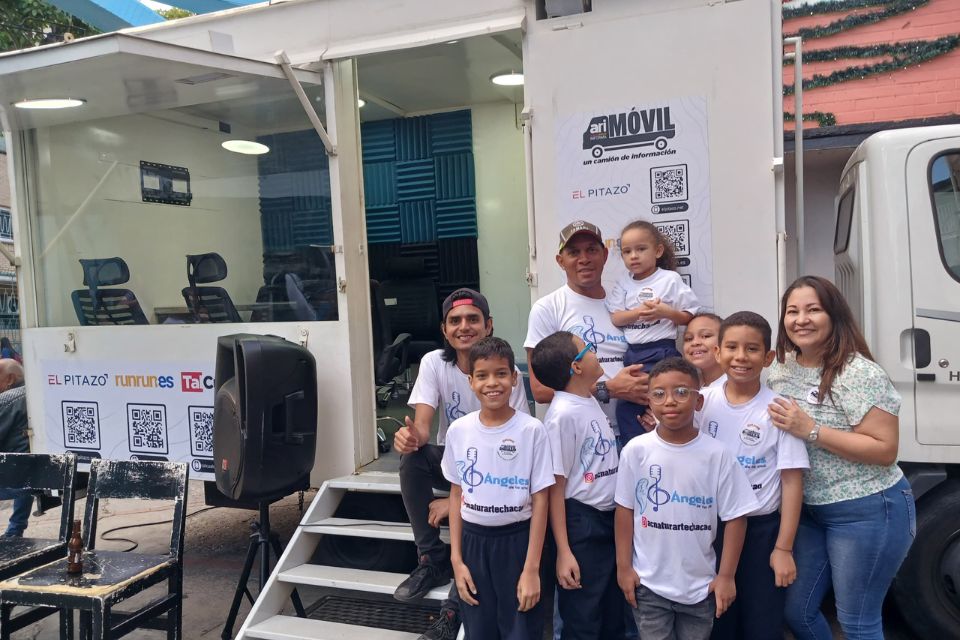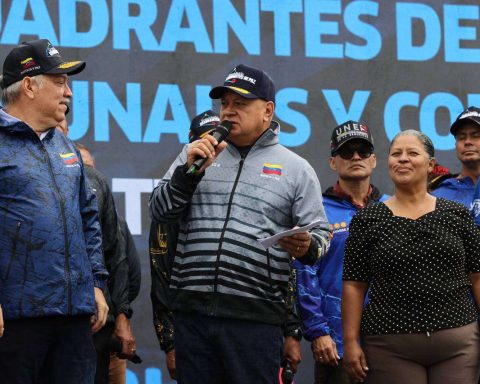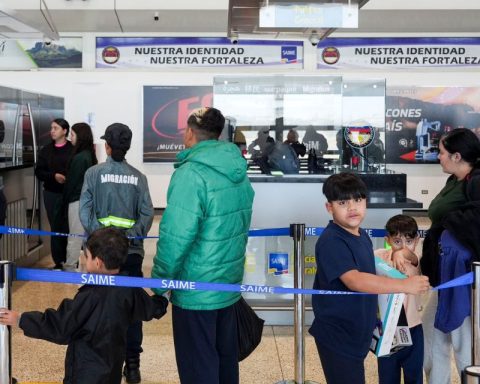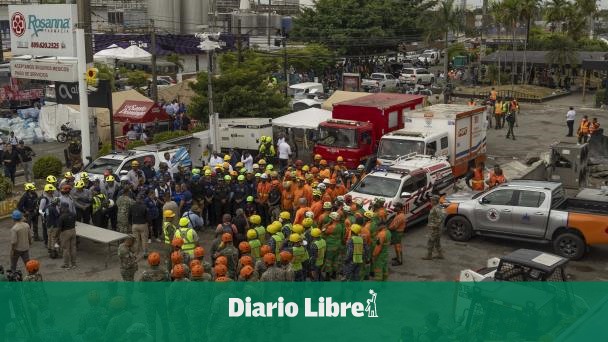Community leaders of La Cruz inspire passion and vocation to their neighbors
“Venezuela sings their tuning. Four villaginos, four villages. Cambur Pintón, Cambur Pintón …”, the angels of the cross, a musical group of children from the community of La Cruz in Chacao. The Information Truck of the Rebel Research Alliance.
The mobile ARI arrived for the third time to the community to inform about the latest national events, give to the kiosks, wineries and charceríterías the newspaper Find outbut also, to know the stories of the community initiatives.
The teacher Lucho; Thais, animal protector; Ender Navaz and Henry Camejo, music teachers; and Roelvis Cáceres, community leader and founder of NaturalThey tell how their actions and initiatives seek to contribute to the development of their community.
Children and adolescents are one of the spotlights of these social leaders. While Naturing you promotes the art and creation of musical groups, Luis Ramírez -Profe Lucho-, a professor of physics, chemistry and mathematics, has decided to teach at low cost for children and adolescents in the community.
Profess SuchWhichthat its reason is not economical, but pedagogical. “My goal was initially more than at all at the pedagogical level, more than economical.”
In addition to teaching, the Professor has a YouTube channel (@Profelucho1986) with more than 7,000 subscribers. Consider that this platform is a solution for adolescents learning. “I opened it – the YouTube channel – with the aim that the boys had that channel and could get many videos about mathematics, physics and chemistry,” he says.
The song of Los Angeles de la Cruz
Together to Naturarte, Ender Navaz and Henry Camejo form the musical set of children and adolescents in the community. The first teaches singing, while the second instructed in the instrumental part.
For Ender Navaz, music teacher, teaching the children of the Cross has been an experience full of challenges, but with positive results. “For us it is a challenge. I am a music teacher and the particular of this population is that we have several children with condition, but we are achieving it little by little,” he says.
Camejo, meanwhile, shares that teaching these children and adolescents has enriched their learning, he is even helping him to develop his degree thesis. For him, Beyond the current salary conditionsbeing a teacher is a matter of vocation. “For this you have to have a lot of vocation and patience. I do not do this for money, or for being famous, but I do it for passion,” he confesses.
The fight for a friendly community with animals
The majority of the inhabitants of the neighborhood of La Cruz meet Thaís Ramírez. Its most remarkable attribute in the community is to be the animal protector. Ramírez feels nervous at the foot of the staircase of the mobile ARI and tells how in addition to helping community animals tries to raise awareness of their neighbors. “One talks to them (their neighbors) and I tell them, try to sterilize the kittens.”
Thaís denounces that the amount of orphan cats in the community is very large and believes that in the community they should make animal health days regularly. Although Thais celebrates that neighbors have welcomed many of these street animals, in turn, fight because those who are homeless are valued and respect their lives.
Passion and vocation, are the most outstanding characteristics of these social leaders. In recent visit to the neighborhood of La Cruz, the mobile ARI is witnessing these social actions that do not give up the difficulties of its surroundings; On the contrary, these social leaders use sensitivity, education and training as tools to combat social disinterest.
*Also read: Ari Mobile | Photography as art, criteria formation and resilience for Caracas
*Journalism in Venezuela is exercised in a hostile environment for the press with dozens of legal instruments arranged for the punishment of the word, especially the laws “against hatred”, “against fascism” and “against blockade.” This content is being published taking into account the threats and limits that, consequently, have been imposed on the dissemination of information from within the country.
Post views: 513

















